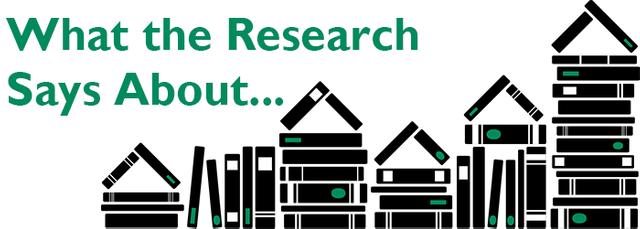Recreational Reading Habit and Students' Academic Achievement
We often hear people say that to succeed is to read a lot. By reading, our knowledge will increase in certain cases. On the other hand, reading will also open our minds to many things with different points of view. Various professions also require us to read in order to understand issues in the workplace, for example the teacher should read to increase literacy on teaching, or the doctor should read to know about new medicine, or politicians should often read news about government policies.
I myself as a teacher often encourage my students to read, not only reading related to school lessons, but also interesting reading for them, such as novels, short stories, newspapers or magazines. Reading at leisure about anything that appeals to someone is called recreational reading.
Recreational reading refers to an array of fun reading activities in which students freely engage in self-directed reading on a wide range of interesting topics (Hung, 2002).
Basically, recreational reading differs from academic reading. The purpose of recreational reading is for fun and interest in something like reading a novel, to learn a reality that happens like reading a newspaper, or reading something to learn a particular skill.
What Research Says about Recreational Reading Habit and Students' Academic Achievement?
In various studies mentioned that recreational reading habit provides positive benefits to students. Therefore, as an English teacher I always encourage my students to read because I see some of these benefits. One of them is research conducted by Dalila (2018) which states that there is a significant relationship between recreational reading habit and student academic achievement. In her research, she explored the time spent by students to do recreational reading in a week toward the students' scores in Reading Comprehension Class at the university. As a result, students who spend more time for recreational reading have higher scores than students with less time for recreational reading.
On the other hand, in Patterson and Proust (2008) research suggests that students who spend more time on reading tend to have better reading and writing skills than students who do not recreational reading. This proves that reading can improve reading comprehension skills and writing skills. Not only that, recreational reading habit also has a positive effect on students' cognitive development, as well as improve students' language skills and increase vocabulary mastery.
What Should Teachers Do?
Based on the above explanation, what we should do as a teacher is to motivate students to read, read and read. We not only encourage students to read relating to learning subjects in the classroom, but we must cultivate their interest to read what is interesting to them, like reading novels, short stories, or daily newspapers.
The strategy that I often use to motivate students to recreational reading is to discuss some new novels on the sidelines of my teaching time. That way, curiosity will grow in students thus encouraging them to search for the novel and read it. Another strategy I use is at the start of the lesson by asking my students some actual information in daily newspapers. Students will get used to read the news before they attend my class so they can engage in the discussion. This requires students to get used to reading the news before they attend my class so they can engage in the discussion.
References : Click on the active links in the article
@affiedalfayed
(a teacher and writer)

USE #steemiteducation TAG
TO SUPPORT EDUCATIONAL CONTENTS AND RESOURCES



I totally agree about recreational reading -- I read novels and short stories voraciously as a kid and it really made a difference in my reading comprehension, writing, vocabulary and critical thinking skills. Now many kids are focused on social media as an escape from daily life instead of getting lost in a good book. Glad to hear there is a teacher trying to bring them back. Keep up the good work!
thank you for reading my article. It is our duty as teacher to enrich students' literacy. We believe that by reading a lot the benefits will comes.
Recreational reading is totally a perfect solution for critical thinking, writing and vocabulary skills, but this only works for those who actually read. If every child can inculcate reading habit, its one step to making the world better.
yes I agree with your point. Thus, as teachers we have to encourage and motivate them to have a passion ini reading to make the world better.